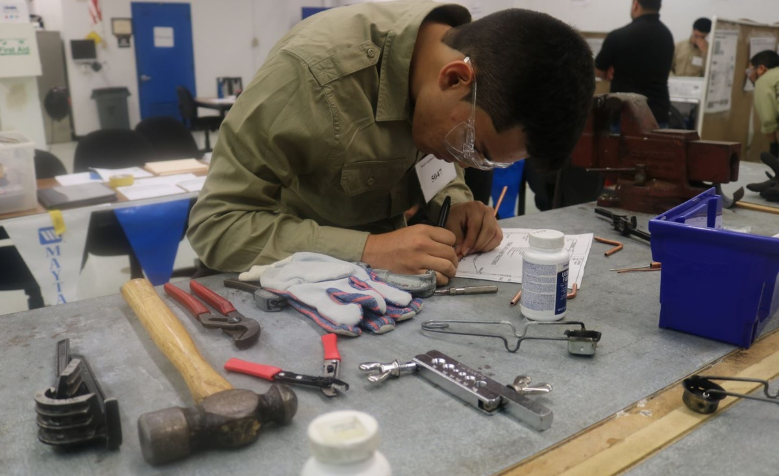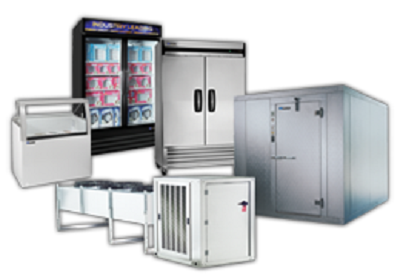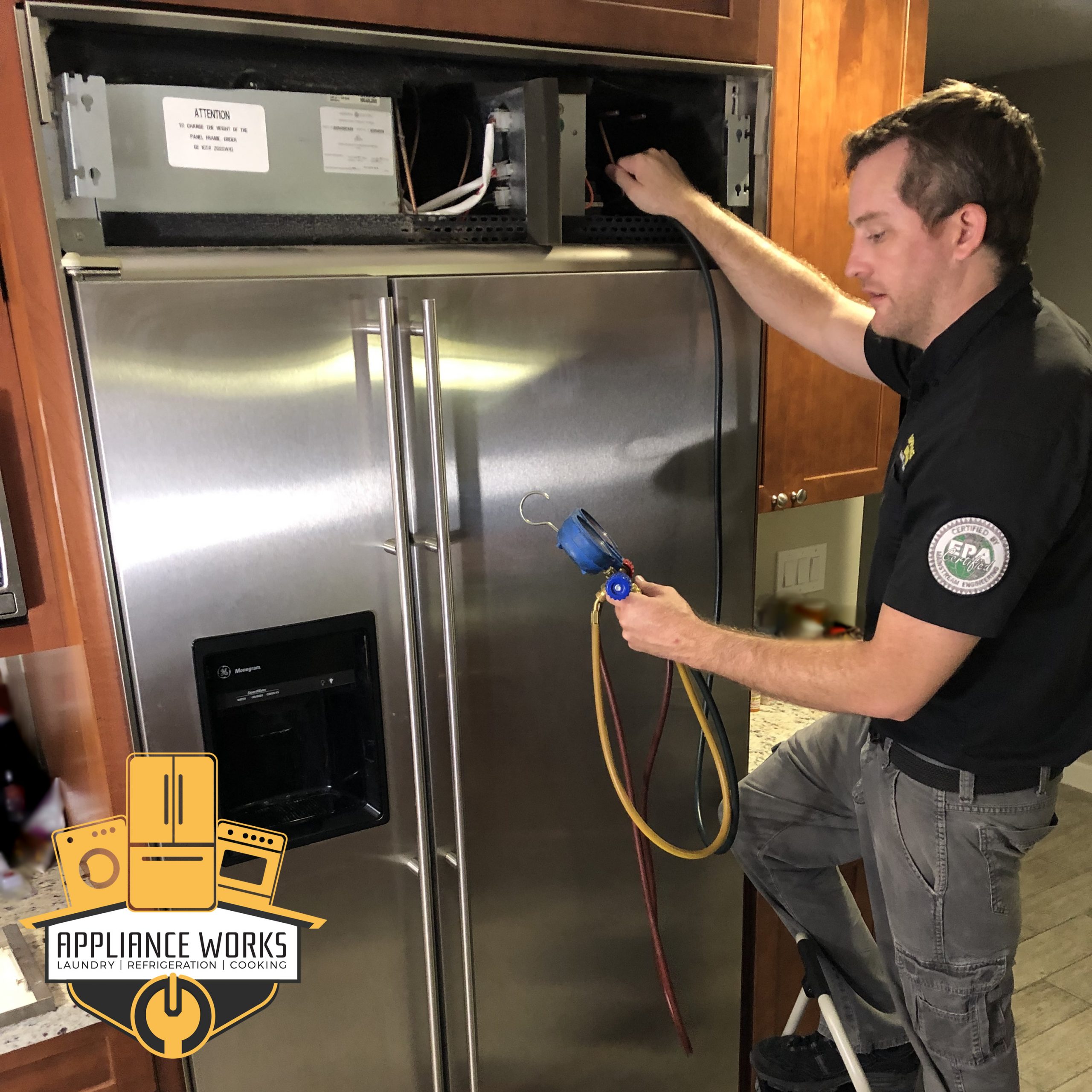Refrigerator Not Cooling? Refrigerator repair experts Dependable Refrigeration & Appliance Repair Offer Quick Troubleshooting Tips
Refrigerator Not Cooling? Refrigerator repair experts Dependable Refrigeration & Appliance Repair Offer Quick Troubleshooting Tips
Blog Article
Necessary Tips for Effective Ref Fixing to Expand Device Life-span
When it comes to your fridge, correct fixing and upkeep are essential for durability. Recognizing typical troubles and understanding when to act can make all the distinction.
Recognizing Usual Refrigerator Troubles
Fridges are vital in keeping your food fresh, yet they can come across a range of usual issues that interrupt their performance. One constant issue is inadequate air conditioning. If you discover food ruining quicker than typical, inspect the thermostat settings or consider if the door seals are damaged. Another usual trouble is excessive sound, which might indicate a malfunctioning compressor or a failing fan. You may additionally experience water pooling inside or below the refrigerator; this usually results from a clogged defrost drain or a malfunctioning water line. Furthermore, if your refrigerator's light isn't working, it could be a simple bulb problem or a problem with the door button. Ultimately, ice accumulation in the freezer can hinder airflow and cooling down effectiveness. Acknowledging these problems early can save you time and cash in repair services, ensuring your refrigerator runs smoothly and effectively.
Routine Maintenance Practices
To keep your devices running smoothly, you need to remain on top of normal maintenance methods. Clean the condenser coils, examine the door seals, and keep track of the temperature level settings to assure peak efficiency. These simple jobs can save you time and cash on repair services down the line.
Clean Condenser Coils Routinely
Cleaning your condenser coils on a regular basis can substantially enhance your device's performance. Dirt and dirt develop on these coils with time, causing your appliance to function more difficult and consume more power. To keep them clean, unplug your device and very carefully eliminate any kind of protective covers. Utilize a vacuum cleaner with a brush add-on or a soft brush to gently eliminate debris. If required, a mixture of warm water and moderate detergent can assist remove stubborn crud. Make certain to allow every little thing dry completely before reassembling and plugging the appliance back in. Objective to clean your coils at the very least twice a year, or regularly if you have pets or live in a dirty environment. This simple task can extend the lifespan of your home appliance significantly.
Inspect Door Seals
3 basic actions can help you assure your home appliance's door seals are in good problem. Examine the seals routinely for any kind of cracks, splits, or indicators of wear. These problems can lead to air leakages, affecting effectiveness. 2nd, tidy the seals utilizing warm, soapy water to remove any type of particles or crud. A tidy seal assures a limited fit and far better efficiency. Execute a simple test by closing the door on a piece of paper. If you can easily pull it out without resistance, the seal may require changing. By adhering to these steps, you'll preserve your device's performance and durability, conserving you cash on power costs and repairs over time.
Display Temperature Level Setups
Consistently monitoring your device's temperature setups is crucial for ideal performance and effectiveness. Use a thermometer to examine these setups on a regular basis, specifically after major modifications, like relocating your home appliance or readjusting the thermostat. By staying positive concerning temperature level surveillance, you'll assure your devices run smoothly and last longer.
Troubleshooting Air Conditioning Problems
When your refrigerator isn't cooling appropriately, it can result in spoiled food and squandered cash, so addressing the problem immediately is critical. Start by inspecting the temperature level setups to verify they go to the advised degrees, usually around 37 ° F for the refrigerator and 0 ° F for the fridge freezer. If the settings are appropriate, check the door seals for any kind of gaps or damage; a damaged seal can permit warm air to enter.
Next, analyze the vents inside the refrigerator and fridge freezer. Confirm they're not blocked by food items, as this can disrupt air movement. Listen for the compressor; if it's not running or making unusual noises, it might require attention. Check the condenser coils, typically located at the back or bottom of the unit. Dirt and debris can accumulate, causing cooling concerns. Clean them with a vacuum or brush to optimize efficiency. If troubles linger, it might be time to call a professional.
Taking Care Of Water Leakage and Ice Accumulation
If you're dealing with water leak or ice accumulation in your appliance, it's vital to identify the resource of the issue. By identifying where the water is coming from, you can protect against more problems and prevent costly repairs. Allow's check out some efficient approaches to deal with these common troubles.
Determine Leakage Sources
Just how can you successfully identify the resources of water leakage and ice build-up in your appliances? Begin by examining the seals and gaskets on your fridge and freezer doors. A worn or damaged seal can permit warm air to get in, triggering condensation and ice. Next off, examine the drain frying pan and drainage system for clogs or obstructions; a backed-up drain can bring about water pooling. Look for any type of loosened links in the supply of water line, which can develop leaks. Check out the defrost drain for ice accumulation, which can interrupt appropriate drain. By methodically inspecting these locations, you'll determine the source of the trouble, permitting you to take the required actions to repair it and expand your appliance's life expectancy.
Protect Against Ice Development
To avoid ice formation in your appliances, beginning by confirming the temperature settings are suitable. If your fridge or freezer is too cold, it can result in extreme ice build-up. Examine the door seals on a regular basis; harmed seals can allow cozy air in, creating condensation and ice development.
Keep the appliance well-ventilated and avoid overcrowding, as this can obstruct airflow - Dependable Refrigeration & Appliance Repair Refrigerator repair specialist of Oro Valley. Consistently thaw your fridge freezer if it does not have an automated defrost feature.
If you notice water leak, determine and take care of any kind of blocked drainage openings, as they can contribute to ice buildup. Clean the coils and verify they're operating correctly to maintain peak performance. Taking these steps will help prolong your device's life expectancy and efficiency.
Addressing Noisy Fridge Appears
While it might appear disconcerting, a noisy fridge typically indicates small issues instead of major breakdowns. Recognize the source of the noise. Typical culprits include the compressor, followers, and water lines. If you hear a humming noise, it could be the compressor working hard; this can just be a regular procedure sound.
Following, check for loose products inside. Occasionally, containers or shelves can rattle, producing undesirable sound. Tighten or reposition them to get rid of the audios.
If you notice a clicking noise, it may be the defrost timer. This is normally harmless however lg refrigerator repair service can suggest it requires washing machine bearing replacement cost examination.
An unbalanced appliance can produce vibrations and noise. Dependable Refrigeration & Appliance Repair Service LG Appliance Repair. Attending to these problems without delay can aid preserve your refrigerator's efficiency and extend its life-span.
When to Change Components vs. Full Replacement

However, if your device is older and experiencing numerous concerns, a full replacement might be extra economical. Think about the cost of repair services versus the device's value. If repairs exceed 50% of a brand-new unit's rate, it's typically better to buy a replacement. Furthermore, if you see continuous problems that maintain repeating, it's an indicator that your device has actually reached completion of its life. Consider these elements very carefully to make the most effective choice for your needs and budget.
Understanding When to Call a Specialist
Just how can you inform when it's time to call in an expert for device fixing? If your home appliance quits functioning altogether or frequently trips circuit breakers, it's one more red flag.
You should also consider your own convenience level with repair services. If you're unclear about diagnosing the problem or do not have the right devices, it's ideal to reach out for aid. Remember, attempting complex repair services can bring about even more damages or perhaps safety and security dangers.

Regularly Asked Questions
How Frequently Should I Tidy the Refrigerator Coils?
You must clean your refrigerator coils every six months. This aids maintain performance and avoids getting too hot. If you notice too much try these out dirt or animal hair, clean them much more regularly to guarantee your refrigerator runs smoothly.

Can I Use Vinegar for Cleansing My Fridge?
Yes, you can use vinegar to clean your refrigerator! It's a superb natural cleaner that gets rid of smells and stains. Washing Machine Repair Dependable Refrigeration & Appliance Repair Service. Simply mix it with water, apply it to surface areas, and clean down for a fresh, tidy refrigerator
What Temperature Should My Refrigerator Be Ready To?
You need to set your refrigerator to 37 ° F(3 ° C) for optimal food conservation. This temperature level maintains your food fresh while protecting against spoilage, ensuring your groceries last longer and reducing waste. It's an easy change you can make!
Does a Refrigerator Required to Be Leveled?
Yes, your fridge needs to be leveled. If it's unequal, it can influence cooling effectiveness and trigger excess noise. Check the leveling legs and adjust them to guarantee proper equilibrium for ideal performance.
Exactly How Can I Decrease Refrigerator Energy Consumption?
To reduce your fridge's power usage, maintain it clean and well-ventilated, check door seals for leakages, established the temperature between 35-38 ° F, and prevent overwhelming it. These steps can substantially decrease your energy bills.
Report this page